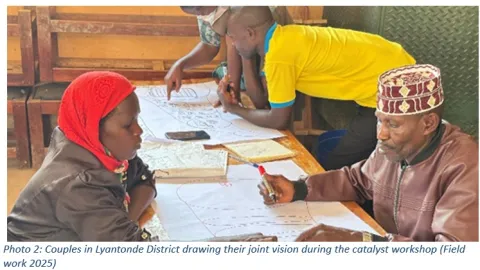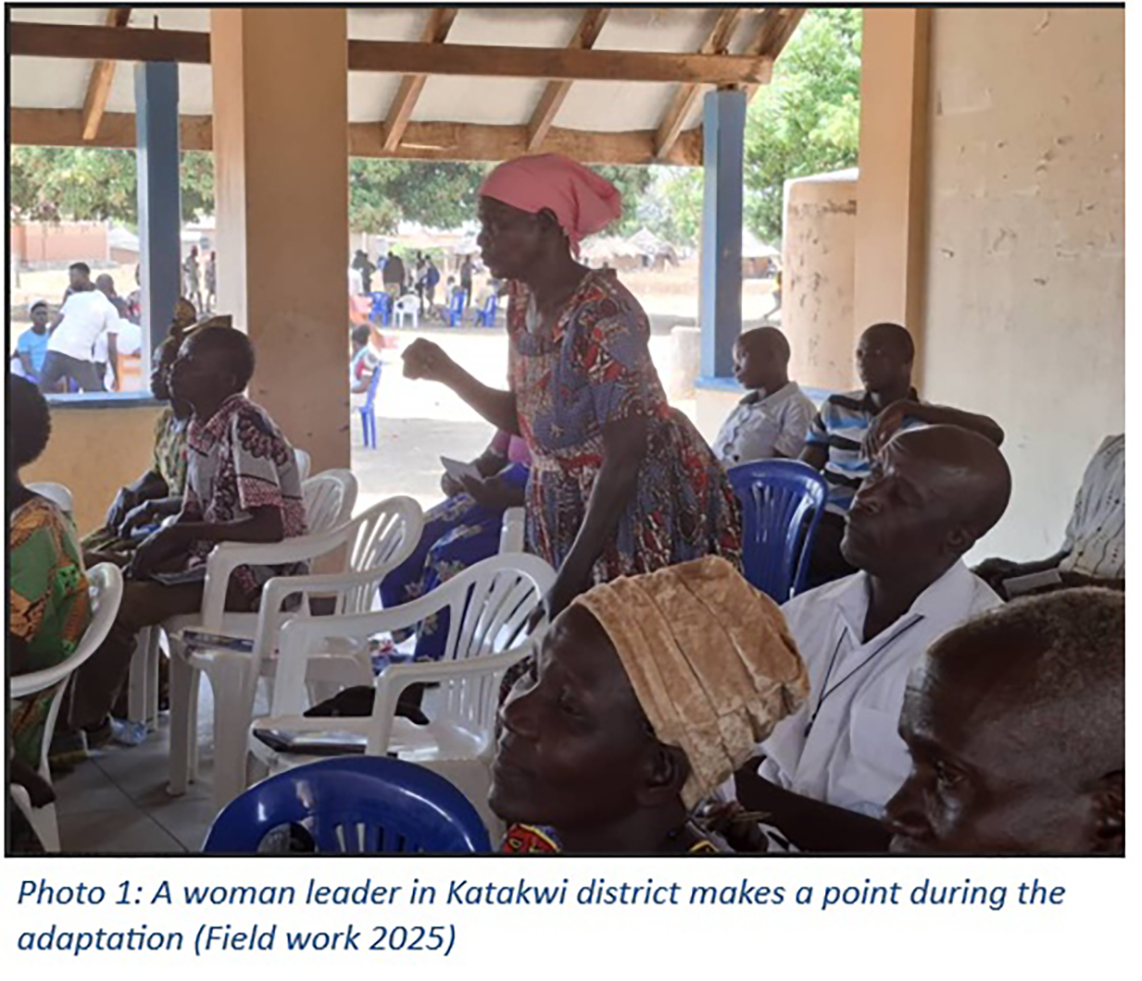By Florence Muhanguzi Kyoheirwe, Brenda Boonabaana and Phionah Birungi
A baseline study conducted in Lyantonde and Katakwi districts revealed entrenched gender inequalities in access to land, decision-making, and livelihood opportunities—disparities that are further exacerbated by climate-induced shocks such as erratic rainfall, prolonged droughts and declining soil productivity e.g. only about 26% of the women that participated in the baseline study are empowered. These intersecting vulnerabilities underscore the urgency of integrating the Gender Action Learning System (GALS) methodology to complement existing resilience-building efforts, ensuring that rural women and men are equally empowered to adapt and thrive in the face of environmental and socio-economic pressures. GALS methodology is implemented under the Women Smallholder Farmers’ Empowerment and Resilience (WOSFER) project, led by Makerere University’s Institute for Gender and Development Studies and the Association of Uganda Professional Women in Agriculture and the Environment (AUPWAE). The project funded by the Foreign Commonwealth Development Office (FCDO) and the International Development Research Centre (IDRC), seeks to strengthen the empowerment and adaptive capacity of women smallholder farmers in the cattle corridor of Uganda. With increasing climate change vulnerabilities intersected by high gender inequalities, the project is quite timely to make a difference.
What makes GALS methodology different?

GALS uses simple drawings and participatory exercises to help women and men reflect on their lives, identify challenges, and work out solutions as equals. No complicated text. No jargon. Just powerful visuals that everyone, irrespective of literacy levels, can use. GALS has the potential to empower smallholder farming households to dream together, plan together and act together which enhances a household’s adaptation capacity to climate change.
In the study sites, the GALS methodology rolled out in three key phases:
In the first phase, the adaptation workshops were conducted, aimed at engaging local leaders, religious institutions, and community representatives. The one-day sessions were meant to build trust and adapt GALS symbols and tools to local culture. This process ensures cultural relevance and resonance to facilitate local ownership and community participation in the co-creation of knowledge. With cultural adaptation, we were able to strategically challenge restrictive gender norms in subtle and respectful ways together with the participants. For example, cultural norms were represented by a spear (often associated with male dominance or protection) in Katakwi district.
